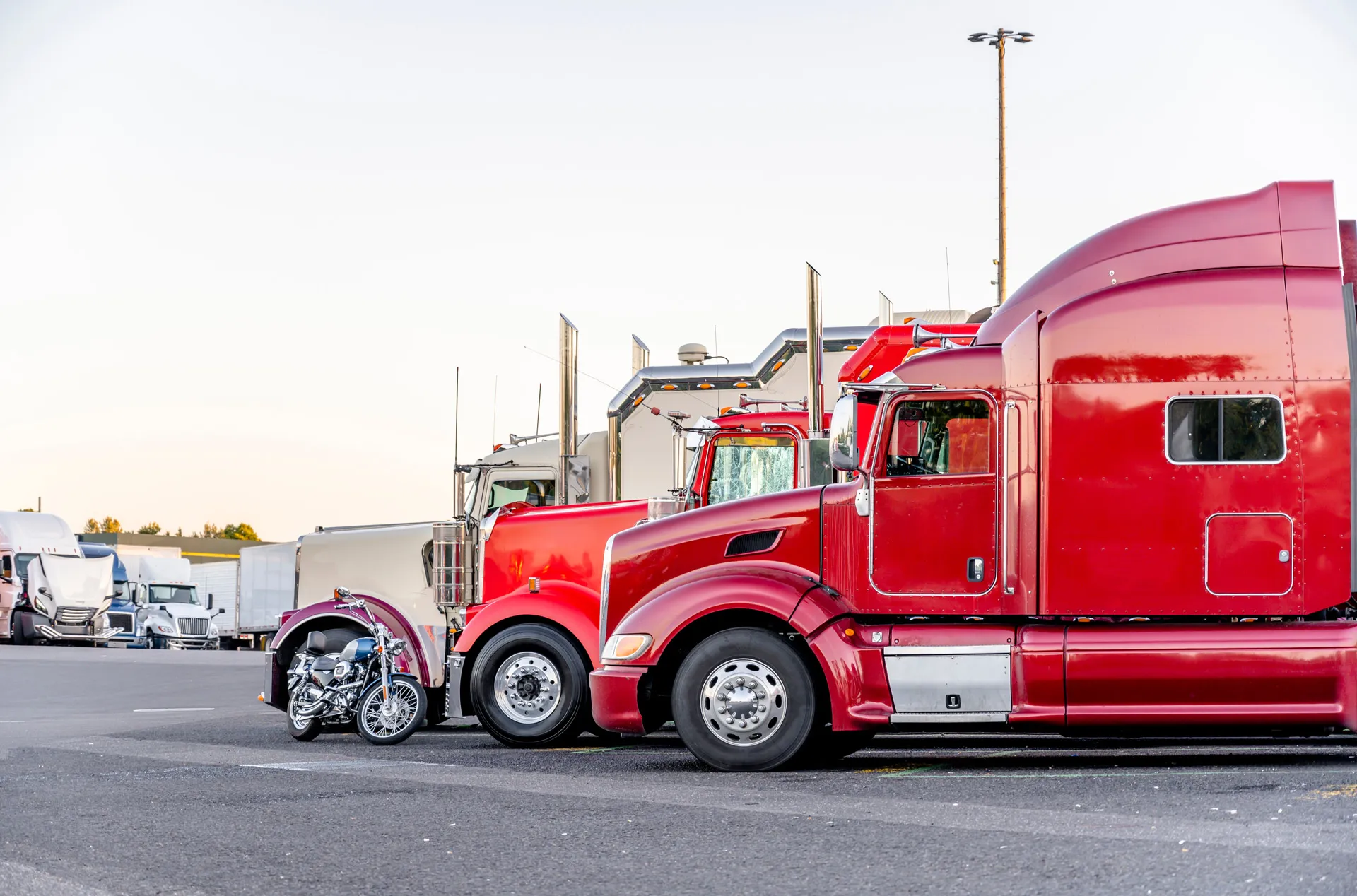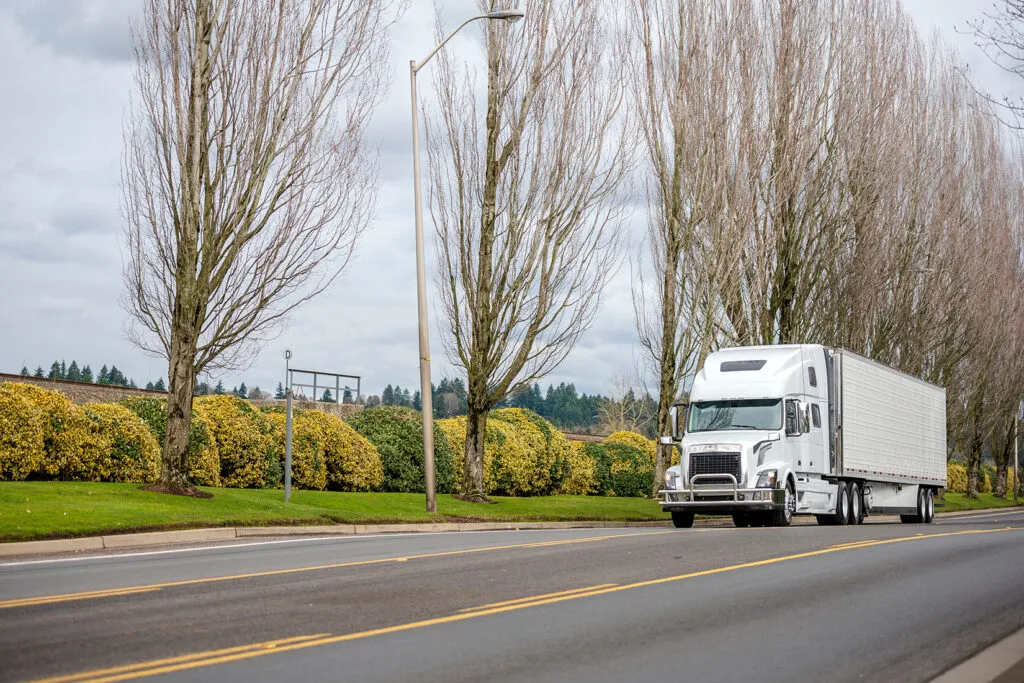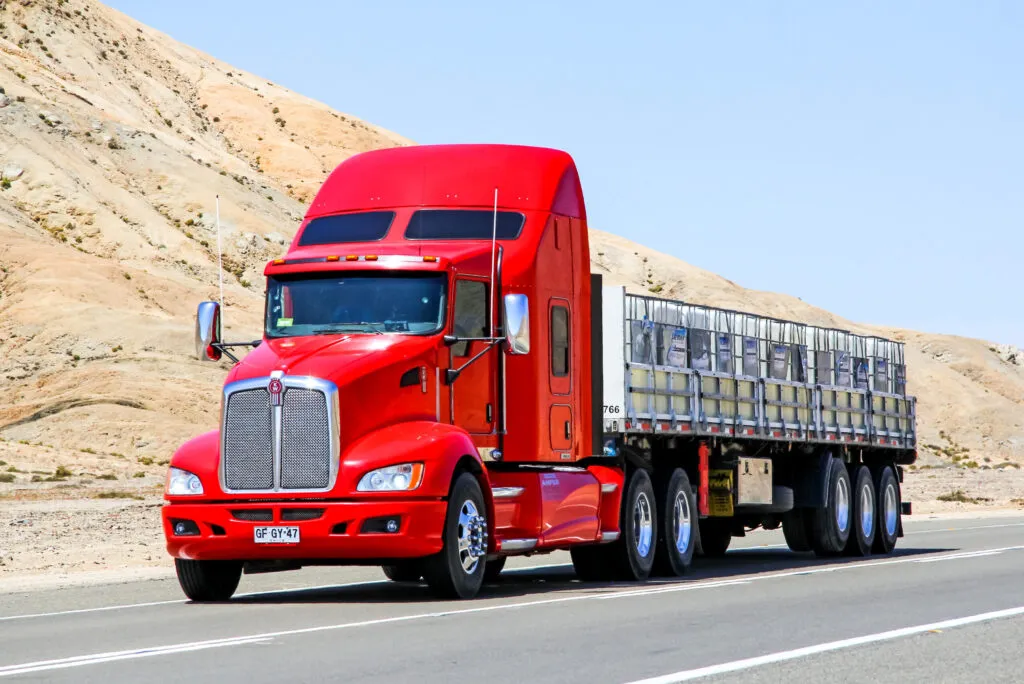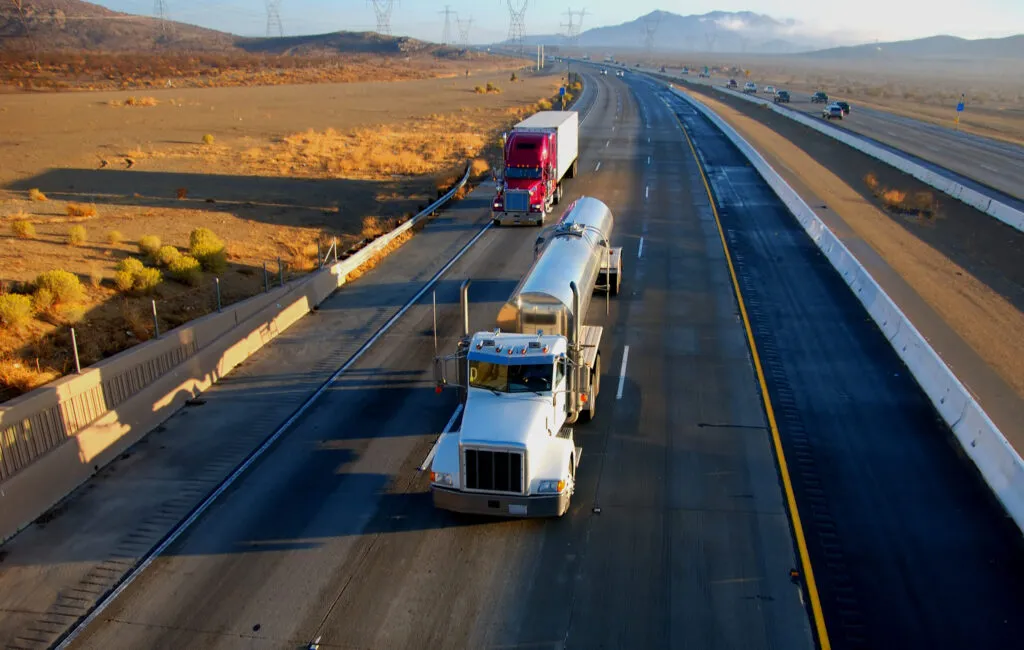CARB 2024: What to Expect from New Regulations and How to Stay Compliant

The California Air Resources Board (CARB) is a government agency focused on improving air quality and combating climate change in California. Its primary goal is to reduce air pollution by establishing policies and regulations promoting cleaner fuels, vehicles, and industrial processes. CARB works to reduce harmful emissions from factories, autos, trucks, and other sources in order to protect the environment and public health.
Recently, CARB introduced new regulations specifically targeting truckers operating in California. According to them, truckers are required to switch to cleaner, newer types of trucks from older diesel models with higher pollution coefficients. This change intends to greatly reduce harmful emissions such as particulate matter and nitrogen oxides, improving the state’s air quality for all residents.
While these changes might require initial investments for truckers, the long-term benefits include improved air quality, better health outcomes, and a positive step towards addressing climate change by reducing greenhouse gas emissions.
New Regulations Overview
Starting from January 1, 2024, every truck that operates in California will have to comply with CARB regulations to continue operating. To do so, truck and fleet owners must enroll in the Clean Truck Check database.
Truckers need to make sure their trucks are in good shape and meet specific environmental standards set by state authorities. Compliance with the Clean Truck Check involves:
- Regular maintenance. The vehicle must be in a proper working state to be allowed to pass the check.
- Emissions standards. It might involve using cleaner fuels or installing specific emission-reducing equipment.
- Paperwork and records. Any changes, maintenance, or upgrades to the vehicle must be documented. You can use these documents to prove compliance.
- Database registration. Simple registration of your truck and its compliance status in the Clean Truck Check database.
Like the Smog Check program for light-duty vehicles, Clean Truck Check requires reporting, vehicle testing, and compliance fees to ensure heavy-duty vehicles in California adhere to emissions standards.

Impact on Drayage Fleets
The Advanced Clean Fleets (ACF) regulation targets specific fleets engaged in drayage operations, state, local, and federal government agency fleets, and high-priority fleets. Drayage operations involve transporting goods over short distances, often from ports or intermodal terminals.
For drayage trucks, the regulation mandates that from January 1, 2024, trucks engaged in drayage activities in California must be registered in the CARB Online System. Non-zero-emission “legacy” drayage trucks can register until December 31, 2023, and operate until their minimum useful life is reached. From January 1, 2024, only zero-emission drayage trucks will be eligible for registration, and by 2035, all drayage trucks entering seaports and intermodal railyards must be zero-emission.
Impact on Government Agency Fleets
Regarding government agency fleets, the regulation requires specific actions:
- State and local government fleets must ensure that 50% of their vehicle purchases are zero-emission by 2024 and achieve 100% zero-emission purchases by 2027.
- Small government fleets (with ten or fewer vehicles) and those in designated counties have a later start date for zero-emission vehicle (ZEV) purchases beginning in 2027.
High-priority and federal fleets are also subject to the regulation’s Model Year Schedule, mandating the purchase of only ZEVs from 2024 and the phase-out of internal combustion engine vehicles starting January 1, 2025, according to specified useful life periods. Alternatively, these fleets may opt for the ZEV Milestones Option, allowing a phased transition to ZEVs as a percentage of their total fleet.
Key Compliance Deadlines and Requirements
As with other regulations, CARB has deadlines for truck and fleet owners to meet the requirements. Two significant milestones can not be missed if you are willing to operate in California.
- Reporting season. That includes:
- A three-month reporting season is projected to run from October 1, 2023, to December 31, 2023.
- Vehicle owners affected by CARB regulations must complete the registration of their vehicles in the Clean Truck Check database during this reporting season.
- This reporting season allows vehicle owners to ensure compliance and register their vehicles in preparation for the upcoming phases and requirements.
- Periodic testing season. That includes:
- Requirements for periodic testing will become effective starting in July 2024.
- Starting from this date, heavy-duty vehicle owners subject to CARB regulations will be required to undergo periodic testing of their vehicles to ensure compliance with emissions standards.
- A passing compliance test must be submitted to CARB for all vehicle compliance deadlines on or after July 1, 2024.
- This implementation of periodic testing marks a crucial phase in maintaining compliance with CARB regulations, ensuring that vehicles meet emissions control standards and minimizing harmful emissions.
The registration process within the Clean Truck Check database involves owners submitting vehicle details, emissions control information, and other necessary data through an online portal, likely accessed via the California Air Resources Board (CARB) website. Additionally, an annual compliance fee of $30 per vehicle supports program administration and enforcement, with vehicle owners responsible for timely payment through the Clean Truck Check database or a designated payment platform provided by CARB, due by December 31, 2023, for the 2023 compliance year.

Testing Requirements and Compliance Deadlines for Out-of-State Vehicles
Out-of-state vehicles (non-California registered) and VIN-based compliance:
- Vehicles registered outside California and DMV-exempt plated vehicles are also subject to compliance testing, with deadlines determined by the last number of the vehicle’s VIN.
- Compliance deadlines are set according to the VIN’s last digit, with each vehicle scheduled for one periodic compliance test in 2024 based on this number.
Compliance deadlines based on VIN numbers:
- For instance, a vehicle with “7” as the last VIN number digit will have a compliance deadline of November 30, 2024.
- Similarly, a vehicle with “1” as the last digit will also have a 2024 compliance deadline on November 30, and a vehicle with “0” as the last digit will have a compliance deadline on October 31.
Recurring compliance deadlines:
- Starting in 2025, both California-registered and non-California-registered vehicles will have recurring compliance deadlines. California-registered vehicles will be subject to semiannual deadlines, while out-of-state vehicles will also have reoccurring deadlines every six months, as indicated by the VIN-based compliance schedule.
Responsibilities for Truckers and Fleet Operators
Under the HD I/M (Heavy-Duty Inspection and Maintenance) Program enforced by the California Air Resources Board (CARB), several responsibilities are outlined for vehicle owners and operators, both in-state and out-of-state:
Registering in the clean truck check database:
- Vehicle owners are mandated to create an owner account in the CARB Clean Truck Check database. This registration process involves identifying each vehicle in the fleet and paying a compliance fee of $30 per truck to CARB.
- Registration in the Clean Truck Check database is necessary to comply with CARB regulations. Failure to register a vehicle may result in non-compliance citations or blocked DMV registration.
- Trucks previously registered in the TRUCRS database should have been re-registered in the Clean Truck Check database by a specified deadline.
Maintaining vehicles:
- Once registered with CARB, vehicle owners are responsible for ensuring regular and proper maintenance of their vehicles.
- Preventive maintenance is crucial to avoid high emissions and potential non-compliance penalties. CARB monitors and seeks high-emitting vehicles, making preventive maintenance a critical strategy for compliance.
Applicability to In-State and Out-of-State Vehicles Operating in California
In-state vehicles:
- Nearly all heavy-duty trucks, buses, and vehicles with a gross weight of more than 14,000 pounds operating in California must comply with CARB regulations, specifically the HD I/M Program.
- The HD I/M Program applies to individual vehicles, not just multi-vehicle fleets, unlike previous regulations such as PSIP.
Out-of-state vehicles:
- CARB regulations apply to any vehicle operating within California, regardless of where they are registered. This includes out-of-state vehicles making trips into California.
- Interstate trucking companies must register their trucks with CARB and ensure they undergo regular OBD testing. Testing can be conducted out of state if the tester is a Clean Truck Check Tester credentialed through CARB’s online program.

Enforcement and Penalties for Non-Compliance
To ensure that truck and fleet owners comply with new regulations, CARB utilizes Remote Emissions Monitoring Devices (REMD). These devices check the emissions that come out of truck engines. If the REMD captures the emission level above the permitted level, the trucker will receive a notification about that and have thirty days to fix the problem. If they don’t fix it, the truck might not be allowed to drive in California anymore.
In case of non-compliance, trucks will not be registered with the DMV, their owners will be banned from operating in California. In addition, vehicle owners will face various fines and penalties. The fines can vary based on the severity of the violation, the number of violations, and other factors.
Practical Tips for Compliance
Adherence to CARB regulations can be easy. With our helpful tips, you will avoid penalties and maintain efficient operations in California.
- Stay informed. CARB provides resources, guides, and updates on its website. Regularly check for any changes in emission standards, compliance requirements, or testing schedules.
- Perform regular maintenance checks. Regular checks and timely maintenance help ensure that vehicles meet emission standards. It includes monitoring exhaust systems, engine tune-ups, and ensuring the proper functioning of emission control devices.
- Keep records and documentation. As mentioned, documentation is essential to demonstrate compliance during inspections or audits. Keep track of emission-related parts replacements and keep records readily accessible.
- Adhere to testing schedules. It may include periodic emissions testing, smoke opacity tests, or other required assessments. Ensure all vehicles undergo testing within the specified timeframes.
- Invest in emission-reducing technologies. Invest in technologies that help reduce emissions, such as upgrading to cleaner engines, using emission-reducing devices, or adopting alternative fuels where feasible.
- Regular fleet audits and internal compliance checks. Conduct regular internal audits to ensure compliance with CARB regulations. Periodically review records, maintenance logs, and testing schedules to identify potential compliance issues before they become problems.
- Engage with CARB resources and assistance. Utilize resources provided by CARB, such as workshops, training sessions, or consultations, to better understand compliance requirements and best practices specific to your fleet operations.
To Summarize
Staying informed and maintaining compliance with CARB regulations is not just a regulatory obligation but a strategic imperative for truckers and fleet operators. The consequences of non-compliance can be severe, leading to fines, disruptions in operations, and potential legal ramifications. Therefore, it’s paramount to prioritize adherence to these regulations.
We highly encourage truckers, fleet operators, and anyone involved in transportation-related activities to regularly visit the official CARB website (www.arb.ca.gov) for comprehensive and updated information. The CARB website offers detailed resources, guidelines, compliance information, and updates on emission standards and regulatory changes. Accessing this official source will provide accurate and reliable information crucial for maintaining compliance and staying ahead of any regulatory modifications.
